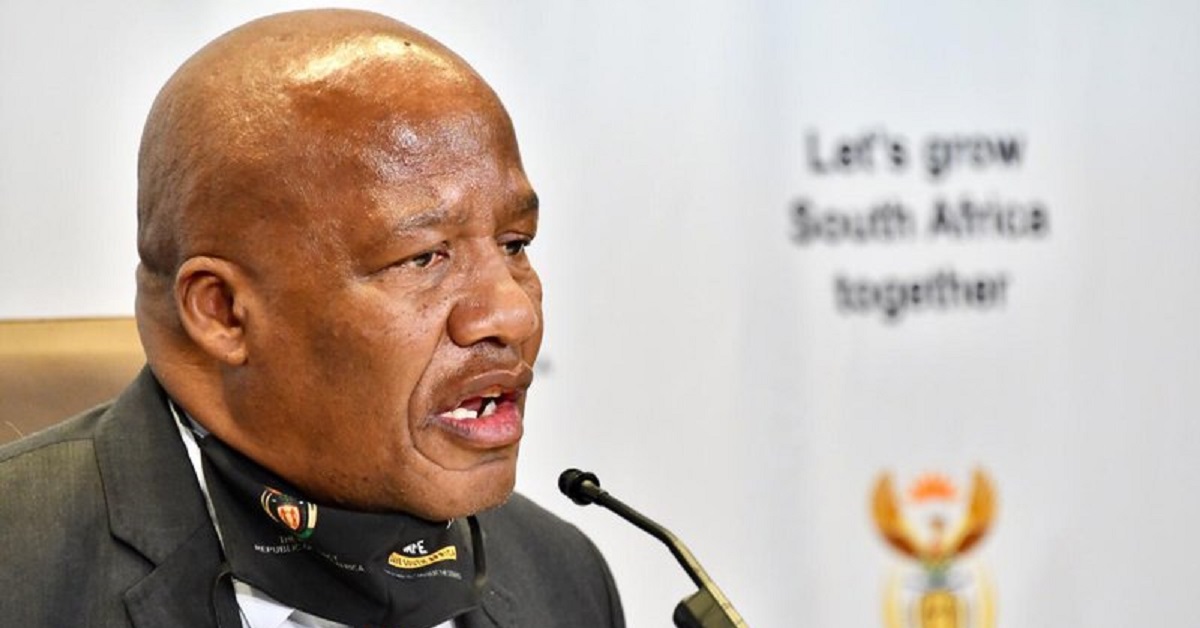| QUICK FACTS | |
|
Birth Name:
|
Jackson Mphikwa Mthembu
|
|
Occupation:
|
Politician
|
|
Date of Birth
|
5 June 1958 (age [age]19580605[/age] years)
|
|
Died
|
21 January 2021 (aged 62) in Gauteng.
|
|
Place of Birth
|
Ackerville, Witbank, Mpumalanga |
|
Nationality:
|
South African |
|
Gender:
|
Male
|
|
Spouse(s):
|
Thembi Mthembu
|
|
Children:
|
6
|
|
Education:
|
University of Fort Hare
|
Jackson Mthembu, full names Jackson Mphikwa Mthembu born 5 June 1958, Graaff-Reinet, Eastern Cape, South Africa), was a South African politician. He was appointed the Minister of Planning, Monitoring and Evaluation Minister in the Presidency since 20 May 2019.
Who was Jackson Mthembu?
Jackson Mthembu was born on 5 June 1958, in Ackerville, Witbank, Mpumalanga, South Africa. He was a student leader at Elukhanyisweni Secondary School in Witbank during the 1976 students’ Uprisings.
Jackson Mthembu wife and children
Jackson Mthembu was married to Thembi Mthembu and they were blessed with six children.
Jackson Mthembu education
Jackson Mthembu’s activism continued when he was a student at the historic University of Fort Hare, resulting in his expulsion in 1980.
Political career and background
Jackson Mthembu contributed immensely to the birth of the Metal and Allied Workers Union (MAWU), the predecessor of the National Union of Metal Workers (NUMSA) in which he became a senior shopsteward at Highveld Steel Corporation where he worked as a training officer and later promoted to be one of the first few black steel production foremen in the industry. He was a leading member of the eMalahleni Civic Association. He led both the local branches of the National Education Crisis and the Detainees Parents’ Support Committee (DPSC), all affiliates of the United Democratic Front (UDF) then.
During the state of emergency in the 1980s, he was subjected to constant harassment and persecution by the security forces of the apartheid regime, resulting in several months of detentions without trial mostly in solitary confinement. Acts of persecution by the agents of the apartheid regime included petrol bombing of his house in Witbank and being subjected to various forms of torture at police stations. He was charged with sabotage, treason and terrorism between 1986 and 1988, and tried together with 30 other activists from Witbank. The trial came to be known as the Bethal terrorism trial and he was acquitted. After this acquittal, the apartheid security police continued with his harassment and intimidation which led him to moving away from Witbank and find refuge in Soweto and Alexandra in the Gauteng Province as an “internal exile”, seriously disrupting his family life.
He was elected as the Deputy Regional Secretary of the United Democratic Front (UDF) in the then PWV region (now Gauteng Province) under the leadership of the late Mama Albertina Sisulu. It was through his involvement with the South African Council of Churches (SACC) under the leadership of Rev. Frank Chikane that he joined the SWAPO solidarity campaign. The solidarity campaign was comprised of various civic groups including the religious community, business and taxi associations under the banner of the UDF. He was part of the UDF and the progressive forces leadership collective that supported SWAPO’s election campaign by providing, among others, minibus taxis to transport voters during the first democratic elections in what was then South West Africa (now Namibia). SWAPO won the elections which led to the liberation of the then South West Africa (Namibia) from apartheid South Africa.
After the unbanning of political parties in 1990, he was entrusted with the responsibility of leading the Witbank branch of the ANC. Between 1990 – 1994 he worked fulltime as ANC spokesman in Mpumalanga and participated as ANC staff component at the CODESA negotiations. Since the unbanning of the ANC in 1990, he has served in several strategic roles including as a member of the ANC Mpumalanga Provincial Executive Committee. He has been part of the ANC National Executive Committee (NEC) since 2007. After the first democratic elections in 1994, he was part of the first ANC Members of Parliament contingent deployed in the then Senate (now NCOP), where he contributed to the crafting of our democratic Constitution in the Constituent Assembly then under the able leadership of Honourable CR Ramaphosa, MP, the current President of the Republic. He was later appointed as MEC in Mpumalanga Province for Public Works, Roads and Transport serving under the successive Premierships of Matthew Phosa and Thabang Makwetla.
He was the national spokesperson of the ANC under President Nelson Mandela from 1995 – 1997, appointed to the same role again from 2009 – 2014. While based at Luthuli House, one of the structures he chaired was the ANC Caster Semenya Support Committee which included the indomitable Mama Winnie Mandela, the responsibility of this committee was to give practical support to Caster against the inhumane treatment, abuse and discrimination she was subjected to by the International Association of Athletics Federation (IAAF). He served as the Chief Whip of the ANC in the National Assembly from 2016 up to the end of the 5th term of parliament in 2019. After the 2019 national and general elections he was appointed as the Minister in the Presidency.
Jackson Mthembu death and cause of death
On the 11th January 2021, Jackson Mthembu took to social media to annouce that he tested positive for COVID-19 and was getting medical attention for an abdominal pain at Military Hospital in Tshwane, Gauteng. He died from COVID-19 complications on 21 January 2021. He was 62 years old.

